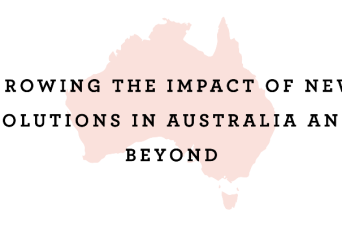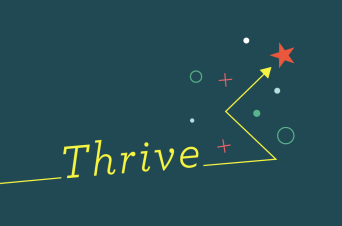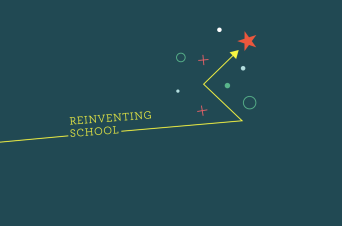Schools collaborating to solve system challenges at scale
STEM Innovation Partnerships
With Department of education, Western Australia
Education system leaders around the world are rethinking how the STEM subjects – science, technology, engineering and mathematics – are taught in schools.
Driven by global economic competition and rapid advances in technology and lobbied by business and industry, governments everywhere recognise the need to radically increase the STEM knowledge and skills of the generation of young people currently in schools; the workforce, leaders and problem solvers of the future.
In Western Australia (WA) in 2016, 27 schools began collaborating in Innovation Partnerships to design powerful new STEM learning experiences with and for their students. In 2017, a further 34 schools joined. In 2018 the STEM Innovation Partnerships program expanded again, this time to include 30 schools and 3 new priority focus areas.
A vibrant community of practice
91 schools over 3 years
in rural and remote communities across WA as well as the metropolitan areas of Perth.
4 innovation partnerships
following a common design-led methodology but each with a different focus.
5 powerful workshops
where school teams learn disciplined innovation, share their progress and ideas and challenge each other’s thinking.
Around the world systems tend to take a centralised approach to investment in STEM education. New organisations or agencies, government grants to individual institutions and national improvement programs to which schools sign up all feature. In WA there has been a different approach.
In 2012 the Department of Education (DoE WA) began identifying Teacher Development Schools (TDS) as part of their school improvement strategy. Understanding that educators learn best from other educators, DoE WA decided that instead of centralising expertise – appointing brilliant educators into system roles – they would leave their experts where they could make their biggest and most direct contribution to improving learning – in school.
The challenge then was to make such expertise available to the whole system. By identifying and highlighting practitioner experts in teaching and learning that could develop and deliver a range of professional learning opportunities for a range of contexts and learning areas, DoE WA began to identify, develop and share expertise in and across schools to achieve the best possible outcomes for students. Brokering and facilitating the sharing of expertise. This profession-based model of support provided through TDS creates opportunities for teachers to collaborate effectively and learn directly from the successful practice of other teachers.
In 2016 to progress the STEM agenda, DoE WA looked to use the profession-based model to meet the STEM challenge head on. Unlike other TDS programs, which are often characterised by the sharing of effective existing expertise and practice, TDSs and DoE WA realised that really making headway on STEM would require something new and different; it would require schools to innovate new learning experiences for their students.
With advice and support from Innovation Unit ANZ, DoE WA introduced a design-led approach to supporting disciplined innovation in schools. Clustered and convened as Innovation Partnerships, TDSs with expertise in STEM collaborated with schools keen to learn with and from them in a series of powerful workshops, which modelled tools and methods for disciplined innovation. Using ethnography and horizon scanning to develop design briefs; generating ideas and prototypes to test and improve in their contexts; and evaluating the impact of their learning designs for students using a wide range of evidence, educators built on their knowledge of STEM, of teaching and learning and of their students, challenging themselves with refreshing new techniques and with inspiration and ideas from elsewhere as well as each other.
The enthusiasm of school teams for this approach and the progress they made led DoE WA to invite another group of schools to take part in 2017, taking the total number of schools in STEM Innovation Partnerships in WA to 61 by the end of the year.
In 2018, with new priorities making their way up the agenda, DoE WA further expanded the program, this time with 3 new foci as well as 30 new schools:
- Digital technologies – introducing a new digital curriculum and innovation in the use of digitech to achieve improved learning outcomes
- Support for Aboriginal students – optimising learning outcomes in urban and rural and remote communities
- Secondary engagement and retention – increasing the number of students eligible to progress to tertiary education
STEM continues to be a priority focus area bringing the total number of 2018-2019 Innovation Partnerships to 4. DoE WA also expanded the range of support available to this growing number of schools with the addition of a new partner – Knowledge Society – working alongside Innovation Unit ANZ.
© Department of Education, Western Australia
OUR IMPACT
The team at DoE WA identify five areas of impact attributable to TDS Innovation Partnerships.
1. Access to consistently high quality professional learning for educators has been a critical feature in the success of the program; an ideal blend of external methodological and content expertise combined with facilitated peer support within the partnerships.
“Innovation Partnerships is not a project, it is an innovation journey; a way of being where people learn together along the way.” DoE WA Team Member
2. There have been far reaching changes to culture and practice in participating schools, where initial scepticism and nerves caused by the unfamiliarity of the language and methods of innovation were overcome first by curiosity and, as the program progressed, by enthusiasm, as educators grew in confidence and felt the powerful difference design thinking could bring to their practice.
3. Working alongside Innovation Unit ANZ and Knowledge Society introduced the team at DoE WA to new ways of thinking and working, with access to global perspectives and fresh approaches informing their work beyond the program. They particularly valued being part of a multi-disciplinary team working together to create something new and exciting for schools
4. Last but by no means least is the brilliant work on STEM by schools in TDS Innovation Partnerships for which there has been political and public recognition. Four schools won prizes in the 2018 State Governor’s Award for leadership in STEM education.
“Championing STEM learning in our schools is an important commitment to ensure students are equipped with the right skills and knowledge to productively enter the workforce of the future. Taking action now will make a huge difference to the well-being of Western Australia and its continued economic sustainability. The leaders acknowledged by the Governor’s School STEM Awards have shown dedication to and passion for providing amazing opportunities for their students and their future.” Ms Deb Hancock
MORE ABOUT INNOVATION UNIT AUSTRALIA NEW ZEALAND
If you have questions about TDS Innovation Partnerships, or are interested in talking further about schools collaborating to solve urgent system challenges and how Innovation Unit could help, please get in touch with Martin James.
Project team
Keren Caple
Chief Executive
(Australia New Zealand)
Martin James
Director, Innovation and People
(Australia New Zealand)
David Albury
Senior Associate


